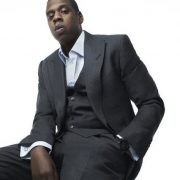My wife has been traveling for a few days, so I’ve been alone with the kids for a few days. It’s a little outside my normal routine, but it was made incomparably easier by all the people who helped me along the way. There’s my mother-in-law, obviously, who kept the kids overnight a few days ago because I had a trip that overlapped with my wife’s, but there are and were countless people working behind the scenes who helped this weekend go so well.
It was spectacular in its ordinariness — or at least in what we think of as ordinariness. Virtually every minute was an exercise in tiny miracles turned into the mundane. A lot of unnoticed and unappreciated hands and minds have gone into making our new normal. The beauty of the market economy is that we don’t need to know or care that much about one another to cooperate to mutual advantage.
Consider the sources of the energy powering the computer on which I’m writing this, the dishwasher running in the kitchen, the washer and dryer running in the laundry room, and the electronic devices on which the kids have spent an inordinate amount of time over the last few days. Someone mined the coal that feeds the power plant.
Someone else invented the machinery that another person used to refine the oil that yet another person extracted from the ground into the gasoline that powers the car in which the kids and I have driven around over the last few days. I don’t have to know anything about them, and they don’t have to know anything about me — and yet we are able to make one another better off through a series of transactions summarized in my power bill and a receipt from the gas station.
Or consider the food we ate. We’ll sometimes pray that God would “bless the hands that prepared” whatever we’re about to eat. Those hands are many. Somewhere, a rancher raised cows that a local butcher I don’t know turned into the ground beef that I combined with the seasoning formulated, processed, packaged, and shipped by a veritable army of other people I don’t know so that I could in turn combine the resulting seasoned ground beef with cheese produced, shredded, packaged, and shipped by an army of people I don’t know and sour cream produced, packaged, and shipped by yet another army of people I don’t know in order to have delicious tacos for dinner. Someone grew beans that were processed, packaged, shipped, and available for me at a moment’s notice when my daughter reminded me that I had forgotten to buy some earlier. The sour cream, incidentally, came in a squeezable tube, which made it ever-so-slightly easier to regulate the amount of sour cream we put on each taco and which reduced by one the number of spoons we had to use and wash.
Part of what makes this remarkable is that we take it all for granted. We should wonder in absolute astonishment along with the 19th-century French economist Bastiat how “Paris gets fed,” or in this case, how I and my kids get fed (perhaps a little too much — Smithian self-command misses a foothold in my life on some margins, most of them gastronomic). It works because we have institutions that reward people for helping others achieve their own interests. Somewhere, someone designed a squeezable tube for sour cream. Did he do so because he was thinking about me or because he was thinking about how it would delight taco-eating parents and children everywhere? Almost certainly not. He was doing it because he had his own interests to look after — his own family, his own community, his own church, and so on.
Of course, you may have read the last couple of sentences and thought, “How do you know it was a he?” I don’t, and that’s a good point. Maybe the tube was designed by a she, or even someone who prefers other pronouns. Maybe the sour cream–tube designer is single — or in a polyamorous open marriage. Maybe s/x/z/he doesn’t pray the way I do, or even pray at all. Perhaps we don’t share the same tastes in music, games, and poetry. Or maybe we’d be best friends if we met. One beauty of a free market is that it brings together people who may not otherwise have any reason to come together and who may not even like one another or approve of one another’s lifestyles and allows them to cooperate to mutual advantage — and we can do so with essentially no knowledge about one another.
It’s an example of something F.A. Hayek discussed in his classic paper “The Use of Knowledge in Society.” Hayek quoted Alfred North Whitehead: “It is a profoundly erroneous truism, repeated by all copy-books and by eminent people when they are making speeches, that we should cultivate the habit of thinking of what we are doing. The precise opposite is the case. Civilization advances by extending the number of important operations which we can perform without thinking about them.”
Countless minds and countless hands have contributed to the slow march of civilization and helped to create a modern world (one fraught with problems, which I don’t minimize) in which I can perform innumerable operations closed off to previous generations without thinking about them. As Russell Roberts put it, “Love locally, trade globally.” As it gets easier to do the latter, it gets easier to do the former.
Or as Jeffrey Tucker likes to say, the market loves you, so you should love it back.













